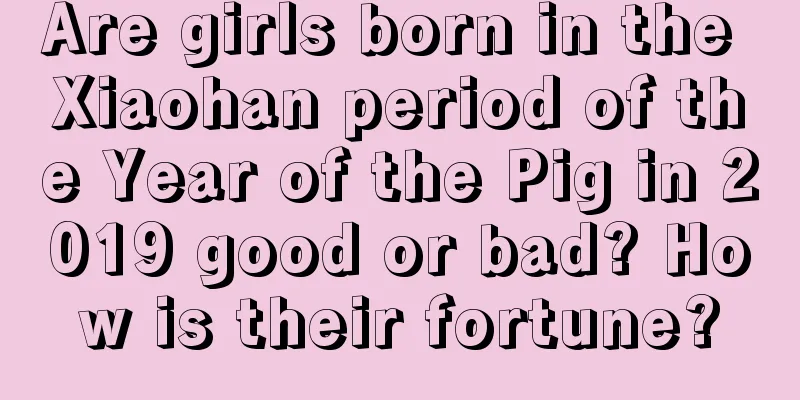Why do we cut our hair on February 2nd, the day when the dragon raises its head? Is there any meaning behind it?

Introduction: Our country is an ancient civilization with a lot of historical accumulation and profound folk cultural heritage, which has given birth to many folk cultures and customs. So, why do we cut our hair on February 2 when the dragon raises its head? What is the meaning behind it? Let’s follow the editor to find out. The first month of the lunar calendar is about to begin with various festivals. Let us count the important traditional festivals and customs of this month. A good year starts with spring.Good fortune and luckIt is generally believed among the people that shaving one's head on this day will bring good luck and fortune, therefore, a folk proverb says "Shaving the head on the second day of the second month will ensure a healthy and energetic year." On the second day of the second lunar month, every barber shop is crowded with customers and business is booming.Taking good luck has become a custom“On the second day of the second month, the dragon raises its head, and men in every household shave their dragon heads.” In the old days, there was a saying among the people in Huai'an that "whether you have money or not, you should get a haircut during the New Year." It has been more than a month since the second day of the second month, and it is the time to get a haircut before the Spring Festival. The second day of the second month is the day when the dragon raises its head. It is an auspicious day. Over time, the custom of shaving one's head on this day was formed. This is also the reason why people say “On the second day of the second month, the dragon raises its head and every child has their hair shaved.” For good luck, the word “dragon” is added in the middle of the shaving day, called “dragon” shaving, to distinguish it from shaving at other times. Some girls also choose this day to pierce their ears. In addition, parents choose this day to send their children to school.Why is this day the day of shaving?On the second day of the second month of the lunar calendar, spring returns to the earth. It is the time to plant crops and the earth is thirsty for rain. In Chinese culture, the dragon is a symbol of good fortune that controls wind and rain. There is a saying that goes, "There will be no rain unless the dragon raises its head." Therefore, the dragon raising its head is a symbol of revival and good luck. In folk customs, people choose to shave their heads on this day in the hope of an auspicious sign of good fortune."Shaving your head in the first month of the lunar calendar will cause your uncle to die" is a misunderstanding. In fact, there are many different sayings among the people about why you cannot shave your head in the first month of the lunar calendar. The most convincing one is that after the Qing army entered the pass, the Han people expressed their longing for the Ming Dynasty by "not shaving their heads in the first month of the lunar calendar", which means "missing the old times". When the Qing army entered the pass, there was a saying, "Keep the head but not the hair." The people in Jiangsu and Zhejiang at that time were very resistant to the system of keeping hair, and a folk song spread among the people: "Don't shave your head in the first month of the year, or your uncle will die if you shave your head in the first month of the year." "Getting a haircut in the first month of the lunar year will cause your uncle to die" is a misunderstanding of folk culture. "Uncle's death" actually means "missing the old times" or "missing your uncle". There is no scientific basis for the idea that getting a haircut in the first month of the lunar year will cause your uncle to die. In fact, the folk custom was not a prediction that "shaving your head in the first month of the lunar calendar will cause your uncle to die", but a form of resistance to the Qing government by using "not shaving your head in the first month of the lunar calendar will make you miss the past", and was cursing the "hair-shaving order" that was forcibly promoted by the Qing government. The saying "If you get a haircut in the first month of the lunar calendar, your uncle will die" has actually been around for a long time. It is not just about "missing the past". People in the past also attached great importance to health preservation and believed that the first month of the lunar calendar was still relatively cold. Getting a haircut in the first month of the lunar year is also very bad for your health. Cutting your hair will make your head cold, and most of the body's meridians are connected to the head. If the head is frozen, it is easy to get sick, so people are accustomed to getting a haircut on the second day of the second month of the lunar calendar. This day is also called "Dragon Raising its Head". If you get a haircut on this day, the whole year will go smoothly. Summary: Through the above article, we know the reason why we have to cut our hair on February 2, the day when the dragon raises its head, and what it means. I hope you will like this content. I wish you all good luck and smooth sailing in the new year! After reading this article, there are more exciting contents in the special topic of the first month of the lunar calendar. Let’s take a look! |
<<: What festival is on the 22nd day of the first lunar month in 2017? Rainwater Festival?
>>: What day is the Dragon Raising its Head in 2017 and what is its significance?
Recommend
What are the do's and don'ts on the first day of the first lunar month in 2018?
When is the first day of the first lunar month in...
Is the 13th day of the eighth lunar month in 2019 suitable for funerals? Analysis of the auspiciousness and inauspiciousness of today's time!
Introduction: Funeral is an important event, and g...
Analysis of the fate of people born in the hour of You during the National Day in 2021
The eighth month of the lunar calendar is coming t...
Where is the God of Happiness on the second day of the eleventh lunar month in 2017?
In the eleventh month of the lunar calendar, whet...
Is the heavy snow on December 7, 2020 an auspicious day for engagement? The meaning of heavy snow is not cold but drought next year
Introduction: According to our folk sayings, it is...
Is it appropriate to start construction on New Year's Day tomorrow, 2021? Does New Year's Day represent the beginning of a new year?
Introduction: Generally, it is necessary to choose...
When does Frost Descent fall this year? Why is Frost Descent also called Frost Knife and Frost Sword?
The solar terms are divided according to the Grego...
Is the third day of the fourth lunar month in the Gengzi year of 2020 an auspicious day?
Is the third day of the fourth lunar month in the ...
What is the fate of a boy born on the 17th day of the twelfth lunar month in 2021? Is fate good or bad?
The issue of destiny has always been something tha...
Is April 20, 2020, an auspicious day for travel? What is its value?
The content of the daily almanac can be used to se...
Is the 2018 Little New Year going well? What to eat during the Little New Year?
Introduction: There are good days and bad days. Is...
The fate of a baby boy born on June 29, 2021
Whether a boy's fate is good or not is related...
Is it good to be born at the hour of Si on Christmas Eve 2019? Is Christmas Eve the same for different denominations?
Is it good to be born at the hour of Si on Christm...
What are the taboos during the 2018 Frost Descent solar term? How's your fortune today?
The 2018 Frost Descent solar term is coming, which...
Where is the God of Happiness on the 28th day of the sixth month in 2017?
Every day has its good and bad days, auspicious a...









